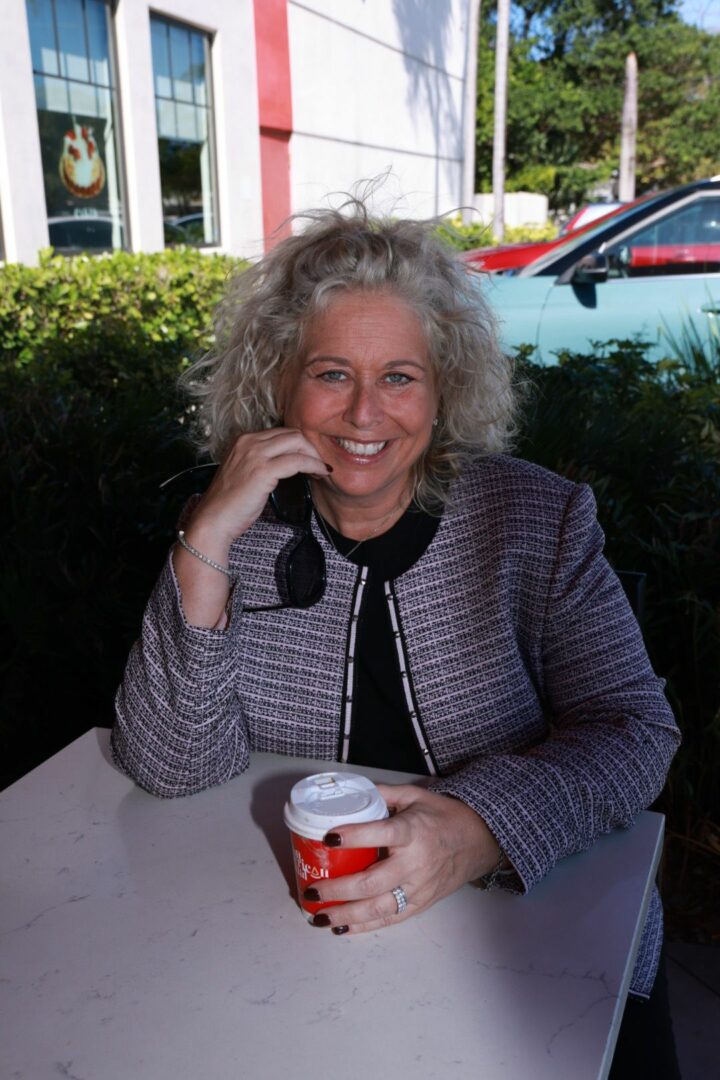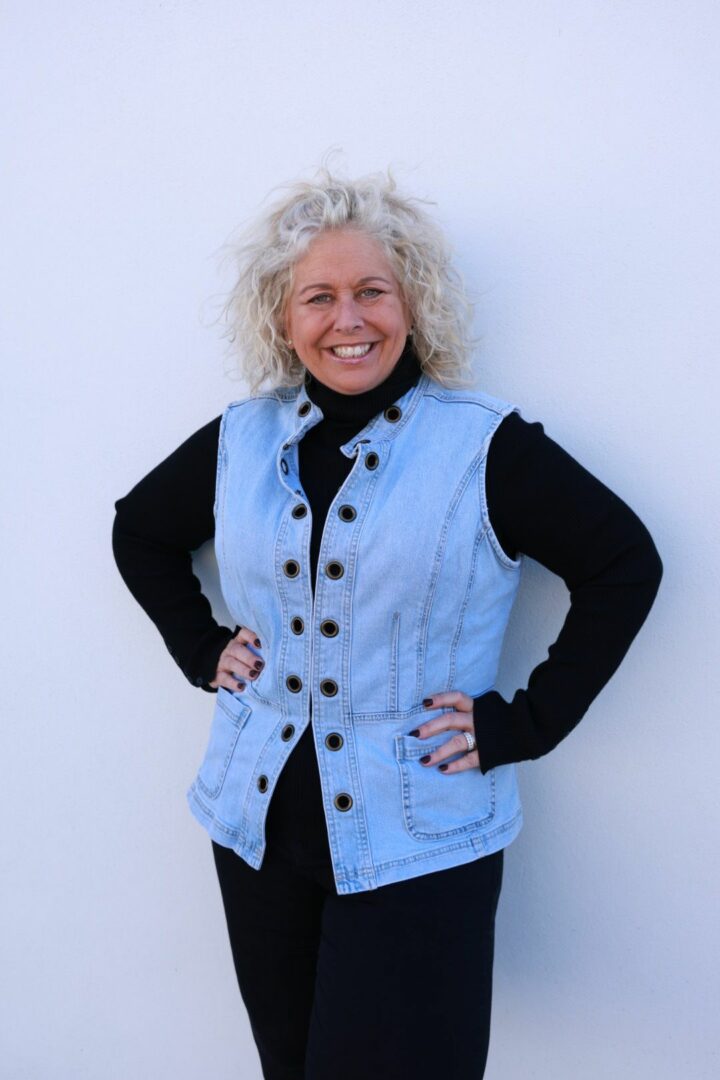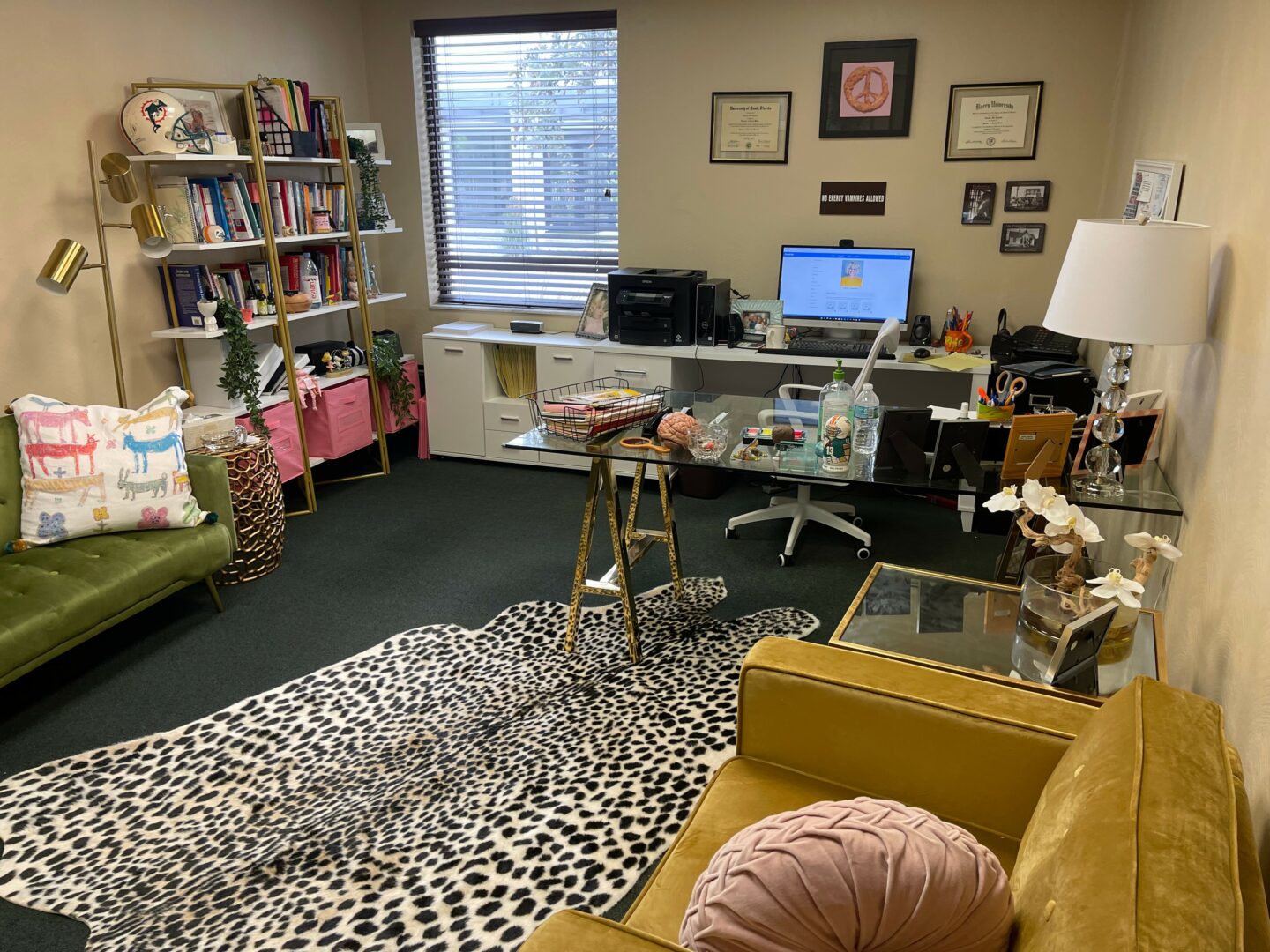Alright – so today we’ve got the honor of introducing you to Allyson Tomchin. We think you’ll enjoy our conversation, we’ve shared it below.
Hi Allyson , appreciate you sitting with us today to share your wisdom with our readers. So, let’s start with resilience – where do you get your resilience from?
Overcoming, Resilience and Adapting
My name is Allyson Tomchin. I am a Licensed Clinical Social Worker and I have Bipolar II Disorder. I would like to share my thoughts about overcoming, resilience and adaptation.
A Solution Focused approach to therapy actively engages clients
in the process of identifying solutions, recognizing strengths, and
envisioning a future where they can navigate challenges
effectively. As therapists, we emphasize positive language, future
focus, and collaboration that contributes to the utilization of
adaptive strategies and the cultivation of resilience in clients.
We are looking at solutions (obviously, it’s in the name!) and
using strengths (remember that Strength-Based Model) in three
essential ways. Those three ways are:
1. Overcoming
2. Resiliency
3. Adaptation
Overcoming
When we talk about overcoming, there is a strong emphasis on
identifying and utilizing our strengths (there’s that strength-based
model again!). When we are encouraged to recognize our
strengths and past successes, we are simply better equipped to
overcome whatever current challenges are in front of us blocking
our way in some respect. This is testing a client’s level of
competence. If you can do it once, you can do it again!
When I am with clients, I may ask them about times when the
problem they have is less severe or not present at all. By
exploring these exceptions, clients can identify strategies and
strengths they are already using that can be applied to overcome
the challenges they face. They can practice the behavior they used
before and channel it again to help them overcome.
As for me, overcoming is absolutely how I choose to approach
my mental illness. I can focus on the hurdles in front of me, how
unfair they are, and how hard it is overall (ughhh!!!) or I can see
myself as an overcoming super ninja, which, by the way, is exactly
what I am! So that is what I do. That is how I consciously choose
to define myself. And, make no mistake, it is a conscious choice
each and every day.
I see myself as how I rise above the situation when life kicks my
ass. My friends and I joke around about it. It’s called “put your
big girl panties on and deal with it!” This is easy to do in
hindsight, but brutal to do in the moment. Trust me, I know that
all too well. That’s true for anyone, but especially true for those
with mental illness. Take the following internal dialogue as an
example:
My illness tells me: “Allyson, you can’t do it!”
My Allyson-ness tells me, “Heck yeah, I can!”
My illness tells me: “You are weak.”
My Allyson–ness tells me: “I am a powerhouse!”
My illness tells me: “You are lazy.”
My Allyson-ness tells me: “I am full of energy and in constant
motion!”
My illness tells me: “You are a bad person.”
My Allyson-ness tells me: “I am totally AMAZING!”
My illness tells me: “You don’t do enough.
My Allyson-ness tells me: “I am a BADASS!”
You get the picture. My mental illness and I are in a perpetual
slugfest. It happens. Yet, I have enough awareness now to
understand it when it is happening and make sure my Allyson-
ness voice is louder and stronger! This is about overcoming.
My strategy during these times is to talk about all the things I do
right and that are going well. Some people might call this
bragging or being self-centered, but I wholly and completely
challenge this notion. We talk easily and freely about what is
wrong and what is bad, so why not spend an equal amount of
time talking about what is working and what is right and good?
Then, of course, right along with complaining is the concept of
worrying. I understand this one too. We worry about our families,
our jobs, our weight, our bills, and on and on. There is not
enough money, the car has a flat tire, my clients are fighting over
their kid’s science fair project, my dad’s nursing home calls and
he needs his toe amputated, the honor roll presentation is at the
same time as a court appearance, the dog crapped in the house, my
client wants to kill herself, I need my nails done, my dress doesn’t
zip, my students need their final papers graded, the rent needs to
be paid on my office, I don’t feel loved by my mother, and I need
to go food shopping.
Now, I promise you don’t have to give up complaining and
worrying. I would never take that away from any of us. Yet, so
much of that worry is fruitless. It gets us nowhere. It’s just
thinking about where we are focusing our time, attention, and
energy. Then looking back on it, we are mad at ourselves for
worrying so much because it was no big deal. We need to be
aware of that and switch the script just like I did above.
Let’s take another look at this. I think music is important.
Everybody needs their jam. And any woman who has ever had a
breakup knows what that jam is—I Will Survive by Gloria Gaynor.
That is exactly overcoming—surviving. No matter what the deal
is, we overcome. We survive—and when we do it enough, we
become resilient.
Resilience
Resiliency is closely related to overcoming. In fact, it is what
happens when we continue to overcome life’s challenges. When
overcoming becomes a habit, we become resilient. There is no
better feeling!
With my clients, this has to do with the positive reframing of
problems. By talking to them about what they have overcome in
the past and helping them view challenges not as problems, but
as opportunities for growth and learning, I can help contribute to
the development of resilience. For this practice, I may use scaling
questions, where clients rate their current situation on a scale.
This helps them recognize their own resilience and ability to
navigate challenges. I can then explore what would help them
move further up the scale.
For me, this is truly about listening to my Allyson-ness way more
than my illness. It is about reflecting on my past achievements
and thinking about past difficult situations that I have overcome
beautifully (even if it was absolutely excruciating in the process).
It is about reminding myself not only how strong I really am, but
also to practice self-compassion when I don’t feel that way. I
must remind myself constantly to be kind to myself. We all need
to do that.
This is also when engaging in self-care activities can be very
beneficial. I try to take care of my physical, emotional, and mental
wellbeing as much as possible. This is different for everyone, but
for me, it’s meditating or taking a walk, watching a sunrise on the
beach. To me, there isn’t much better than breathing in that salty
ocean air and watching the waves crash to the shore. That’s my
vibe! But it’s not just about the beach. It’s about finding the place
that creates peace for you to remember what a resilient badass
you are!
One other key part of resiliency is surrounding yourself with
supportive people. Spending time with friends, family members,
or others who uplift and encourage you helps to serve as a
constant reminder of how resilient you are. Their belief in you
alone has the power to move mountains.
This is where my village comes in.
This village helped raise my kid. This wasn’t always easy. I am a person who
gives naturally. Taking is difficult for me. Learning to receive was,
and still is, hard. Another positive that came out of my divorce
was that it taught me how to have reciprocity in
relationships—another great reminder of my resiliency (you see,
it’s everywhere). I am forever grateful to my peeps who helped
me raise my daughter to the unbelievable woman she is today.
Ask yourself who is in your front row. Who matters. Who brings support and joy to your life. Those are the people who will make a difference in your life.
Adaptation
With adaptation, it’s all about envisioning a preferred future and
identifying steps to move toward it. This process inherently
involves adapting to new possibilities and changes. That’s
because while we are going through the process of change, other
things in our environment will be staying the same. We need to
adapt our new way of being oftentimes with our surroundings
that are likely the same as before. In this way, I prompt my clients
to consider what changes they can make to move closer to their
desired outcomes, all with a focus on the solution, not the
problem.
Adaptation can also refer to the process of adjusting to new
circumstances or environments that have changed in order to
thrive and survive.
To find ways to navigate life’s challenges, drawing upon a combination of
innate tendencies and learned behaviors.

Thanks, so before we move on maybe you can share a bit more about yourself?
I provide individual and family therapy and I believe that therapy can be fun. It does not need to be stiff and stuffy. Find a therapist that you like and who also has the experience, education and skill set. It is my belief that you need to have all of these to have successful therapy. The relationship with your therapist needs to be a good one where you feel comfortable to share some of your deepest and most vulnerable thoughts. I offer session by session or you can purchase a package of sessions for a reduced cost. Therapy is hard and challenging work but by doing this you can see how overcoming, resilience and adaptation affect your life in a positive way.

Looking back, what do you think were the three qualities, skills, or areas of knowledge that were most impactful in your journey? What advice do you have for folks who are early in their journey in terms of how they can best develop or improve on these?
Again, I will go back to overcoming, resiliency and adaptation. I can look back and see what a good job I did at something to show me I am competent and I have done it before and I can do it again. My guidance for folks struggling is to see what you have accomplished and build on that. Recognize that the more you do it the more resilient you will become and this will assist you in adapting in life.

All the wisdom you’ve shared today is sincerely appreciated. Before we go, can you tell us about the main challenge you are currently facing?
I am currently writing a book which will launch in May for Mental Health Awareness Month. It’s called Bipolar XL and I have to say it’s a little scary putting your life out there on display but I am going for it!
I want to help other people who are struggling.
Contact Info:
- Website: https://www.therapyhead.org
- Instagram: @therapyheadfl
- Facebook: Therapyheadfl
- Linkedin: therapyheadfl
- Other: TicTok – @therapyheadfl
Instagram – @therapyheadfl

Image Credits
Peyton Lantz, Pixel Peyt Inc.
so if you or someone you know deserves recognition please let us know here.



